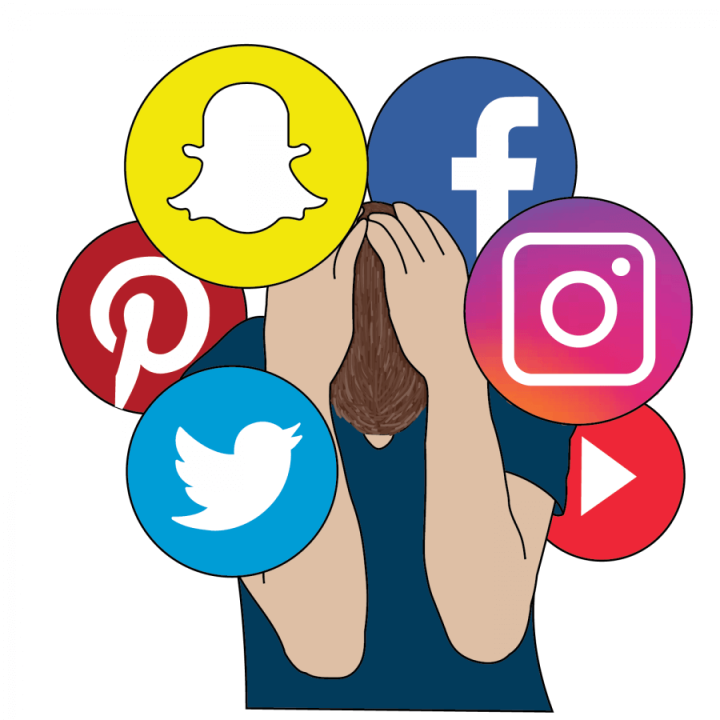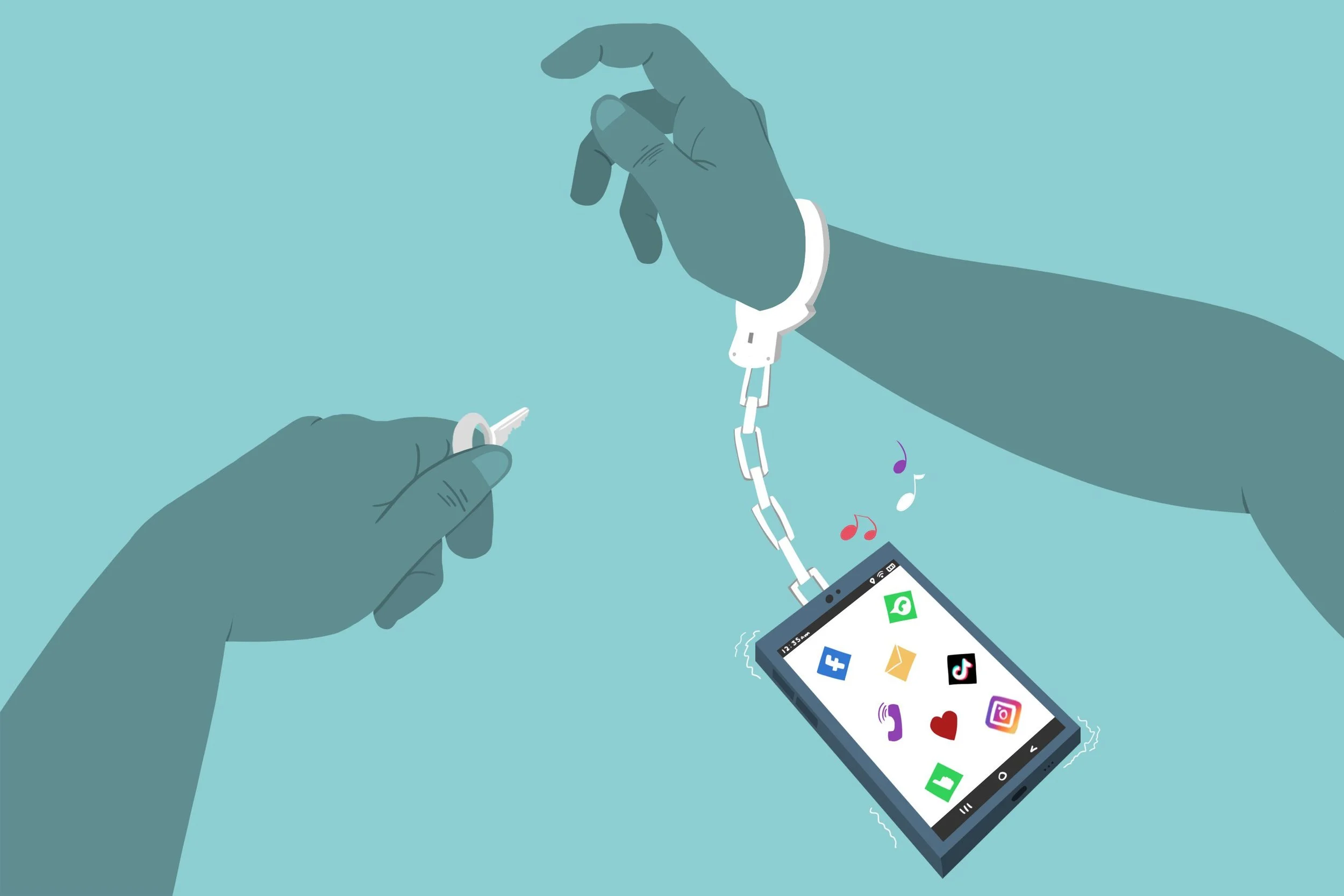Always On: Reclaiming Your Mental Health from Phones and Social Media
By Mark Ryan, Psychotherapist | Rise and Grow Therapy, London
We live in a world where the line between “online” and “real life” has blurred to the point of invisibility. Our phones wake us up, distract us at work, entertain us during downtime, and even keep us company in bed. The average person now checks their phone around 144 times a day (Asurion, 2022), and for many of us, that number is likely higher. We’ve stopped noticing just how much we’re reaching for these devices—and what it might be costing us.
From a therapeutic perspective, I’ve seen first-hand how phone and social media habits shape not just individual wellbeing, but also the health of relationships. This post explores what happens when we’re always online, how it can quietly erode mental health and intimacy, and what we can do to build a more intentional, balanced relationship with our digital lives.
The Mental Toll of Always Being Connected
1. The dopamine loop and digital dependency
Social media platforms are designed to hook us. Each like, comment, or new post activates the brain’s reward system, releasing dopamine—a chemical that makes us feel good and want more (Montag et al., 2019). Over time, our brains begin to crave these quick hits of stimulation. We might not call it addiction, but many of the behavioural patterns mirror exactly that: compulsive checking, irritability when we can’t access our phones, and prioritising screen time over real-world engagement.
2. Increased anxiety and low mood
Endless scrolling might feel passive, but it places a significant demand on our cognitive and emotional systems. Exposure to curated highlight reels of others’ lives can fuel feelings of inadequacy, comparison, and FOMO (fear of missing out), which are all strongly linked with increased rates of anxiety and depression (Huang, 2017; Keles et al., 2020). The more time we spend consuming other people’s content, the more likely we are to feel that our own lives don’t measure up.
3. Sleep disruption and overstimulation
Blue light from screens can interfere with our natural circadian rhythms, making it harder to fall asleep or stay asleep (Chang et al., 2015). But it’s not just the light—it’s the stimulation. Reading the news, watching TikToks, or replying to messages before bed keeps our brains in “on” mode. And when sleep suffers, everything else—mood, memory, emotional regulation—tends to suffer too.
Social media platforms are designed to hook us
How Devices Impact Our Relationships
As a therapist working with both individuals and couples at Rise and Grow Therapy in London, I’ve observed how phone habits can quietly but powerfully disrupt connection.
1. Digital interference in emotional intimacy
There’s a term we use in relationship psychology: “technoference”—the way technology interrupts or intrudes on personal interactions. Whether it’s checking emails during dinner or scrolling during conversations, phones can become a third party in the relationship, drawing attention away from the present moment and from each other (McDaniel & Coyne, 2016). Clients often describe feeling “second best” to their partner’s phone—an experience that leads to resentment, disconnection, and loneliness, even within an otherwise loving partnership.
2. Distraction from meaningful presence
We live in a world where multitasking is glorified, but presence is what relationships thrive on. Being physically together is not the same as being emotionally available. When our attention is fragmented by constant notifications or the lure of a quick scroll, our capacity to truly listen, attune, and respond to one another gets eroded. And that erosion builds up over time—until couples find themselves talking less, misunderstanding more, and drifting apart.
3. Trust and boundaries in the digital age
Phones and social media have introduced new stressors in romantic dynamics: snooping through messages, unclear boundaries around DMing exes or liking risqué content, and disagreements over privacy. These aren’t “petty” issues—they often touch deep emotional nerves around trust, autonomy, and respect. Therapy becomes a place to unpack not just the behaviours, but the feelings underneath them.
Building a Healthier Relationship with Technology
I’m not here to demonise phones. They connect us, entertain us, and often support our work and wellbeing. But like any relationship, our connection with our devices needs boundaries, awareness, and care.
Here are some strategies I often recommend to my clients—and practice myself—to foster a more conscious and nourishing digital life:
1. Audit your screen time without judgment
Start by noticing your patterns. Most phones now provide weekly screen time reports—use them. Are there apps you open mindlessly? Times of day when you’re most vulnerable to scrolling? Tracking is the first step toward change. Try not to shame yourself; instead, get curious. What are you reaching for your phone to feel or avoid?
2. Create device-free zones and times
Designate specific areas (e.g., the bedroom, the dinner table) or times (e.g., the first hour after waking) as phone-free. Couples might try a “tech basket” by the door to put phones away during meals or evenings together. It’s not about restriction—it’s about making space for presence.
3. Reclaim the bedtime routine
Replace nighttime scrolling with something soothing: a book, a podcast, or simply a few minutes of quiet. Charge your phone outside the bedroom if possible. This shift alone can improve sleep quality, reduce anxiety, and set a calmer tone for the next day.
4. Use apps to help you use apps less
Ironically, technology can support better tech habits. Tools like Freedom, Forest, or Apple’s Screen Time limits can reduce overuse. Some clients find success using grayscale mode to make apps less visually stimulating or deleting platforms from their phones entirely and only using them on desktop.
5. Have a social media strategy
If you want to keep using social media, that’s absolutely valid. But be intentional. Curate your feed to prioritise what inspires, informs, or uplifts you. Mute or unfollow accounts that trigger comparison, outrage, or low self-worth. Consider asking: “Why am I opening this app right now? What do I hope to get from it?”
6. Talk to your partner about digital boundaries
If phones are a source of tension in your relationship, don’t avoid the topic. Have a calm conversation about what each of you needs in terms of digital connection and disconnection. This might include agreeing on phone-free meals, clarifying boundaries with social media interactions, or using apps like “Paired” to intentionally deepen connection.
Our connection with our devices needs boundaries, awareness, and care
Therapy Can Help You Reconnect—With Yourself and Each Other
In my practice, I often support clients in exploring their relationship with technology not as a standalone issue, but as part of a wider landscape of emotional health. Are you feeling anxious, overstimulated, or disconnected? Are you numbing discomfort with distraction? Is your phone a way to soothe or a way to avoid?
In couples therapy, we dig into how technology intersects with deeper dynamics: intimacy, power, avoidance, validation. A phone habit can be the symptom—but beneath it might be an unmet need for attention, reassurance, escape, or control.
Therapy offers a space to slow down, notice these patterns without blame, and experiment with new ways of being present—with yourself, with your partner, and with your life.
Final Thoughts: Choose Connection Over Convenience
Phones aren’t the enemy. But unchecked, they can quietly pull us away from the very things we value most: peace of mind, emotional presence, meaningful connection. Reclaiming your attention isn’t about becoming a technophobe—it’s about remembering that your attention is precious, and it deserves to be directed consciously.
You’re allowed to set boundaries with your phone. You’re allowed to log off. You’re allowed to choose depth over distraction. And if that feels difficult therapy can help.
If you’re noticing that phone or social media use is affecting your mood, your sleep, or your relationships, you’re not alone. You don’t have to figure it out by yourself. Get in touch with me at Rise and Grow Therapy, and let’s talk about how we can help you reconnect—on your terms.
References
Asurion. (2022). How often do we check our phones? Retrieved from https://www.asurion.com/connect/tech-tips/how-often-do-we-check-our-phones/
Chang, A.-M., Aeschbach, D., Duffy, J. F., & Czeisler, C. A. (2015). Evening use of light-emitting eReaders negatively affects sleep, circadian timing, and next-morning alertness. Proceedings of the National Academy of Sciences, 112(4), 1232–1237.
Huang, C. (2017). Time spent on social network sites and psychological well-being: A meta-analysis. Cyberpsychology, Behavior, and Social Networking, 20(6), 346–354.
Keles, B., McCrae, N., & Grealish, A. (2020). A systematic review: The influence of social media on depression, anxiety and psychological distress in adolescents. International Journal of Adolescence and Youth, 25(1), 79–93.
McDaniel, B. T., & Coyne, S. M. (2016). “Technoference”: The interference of technology in couple relationships and implications for women’s personal and relational well-being. Psychology of Popular Media Culture, 5(1), 85–98.
Montag, C., Lachmann, B., Herrlich, M., & Zweig, K. (2019). Addictive features of social media/messenger platforms and freemium games against the background of psychological and economic theories. International Journal of Environmental Research and Public Health, 16(14), 2612.


